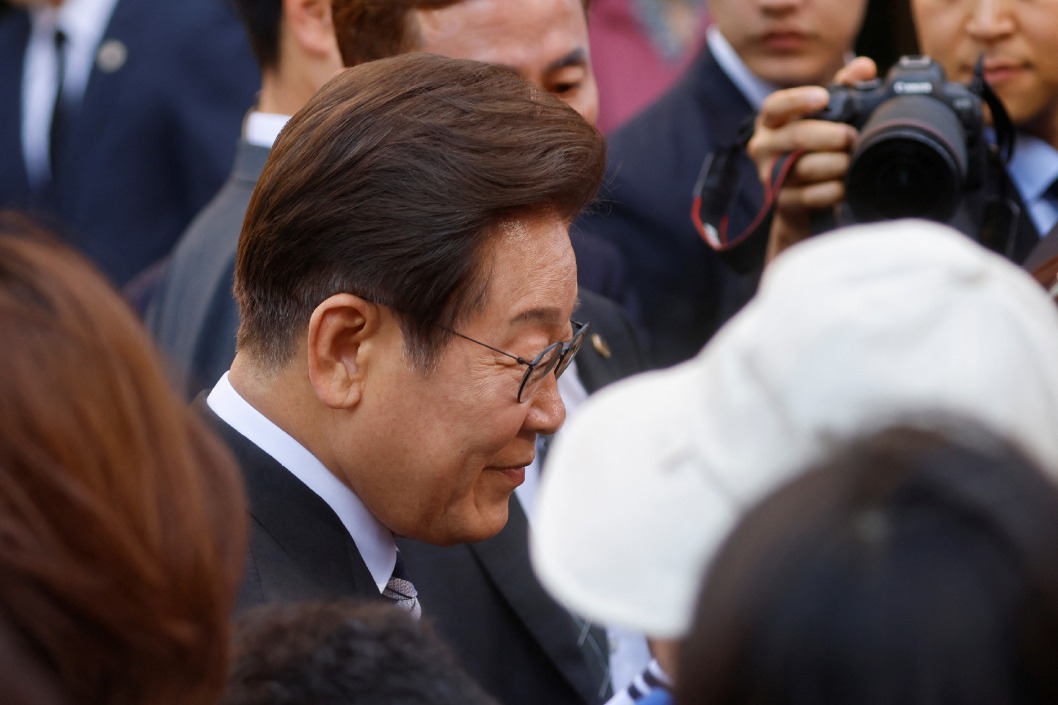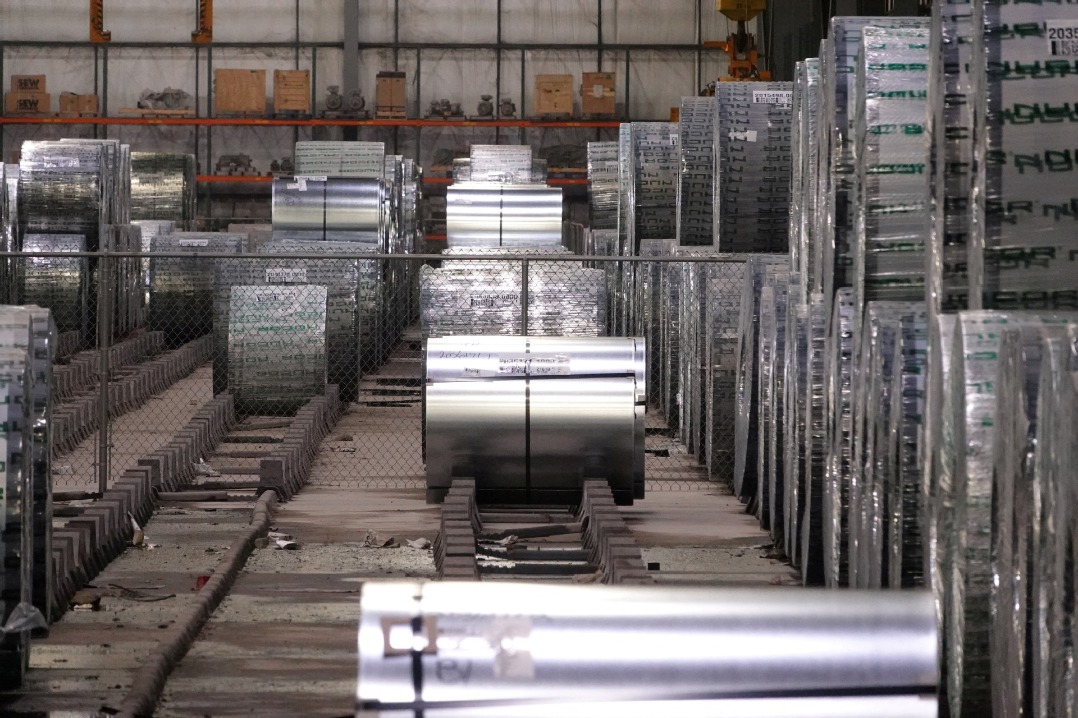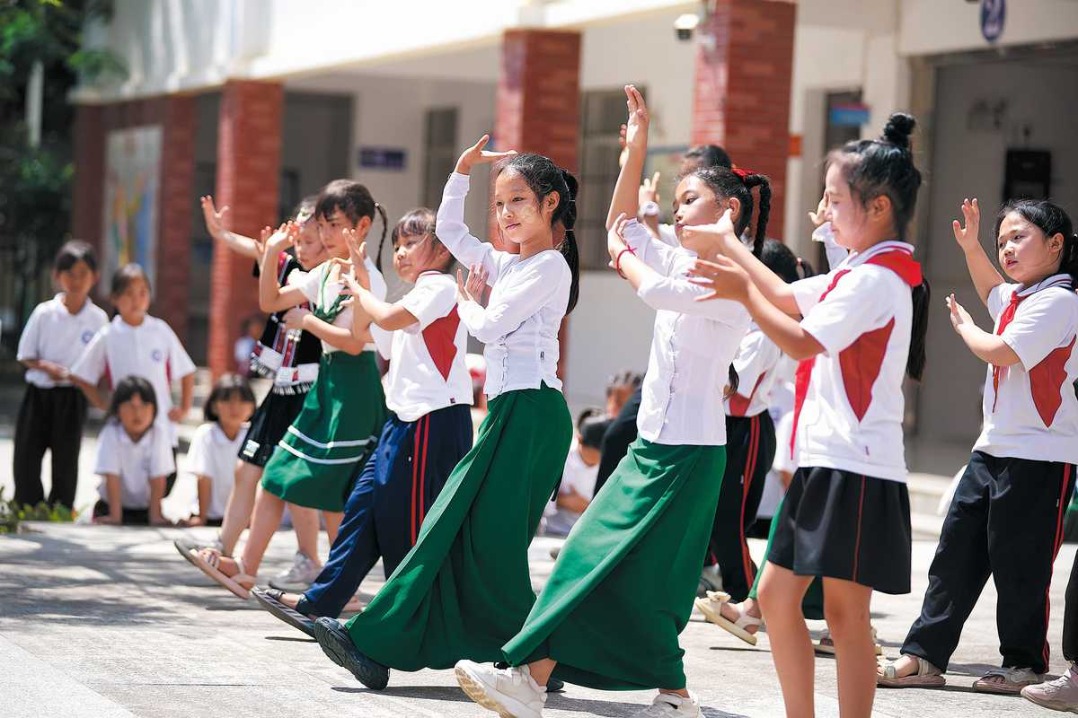South Koreans self-marry even as marriage rate drops

Kim Seul-ki, a manager at Lush Korea has publicly declared her commitment to singledom by holding a solo wedding.
"Now that everyone knows I've declared sologamy, questions about my marital status just naturally dissipated. It's very satisfying and I can't think of any negative sides to it," Kim, 39, said, recalling her marriage to herself last year.
"It made me feel like my perspective on life and my values could be accepted as they are," she added.
Kim was among six employees at the UK-based cosmetic retailer's South Korean unit that received the company's "sologamy" benefits last year. They include a special cash bonus and a 10-day vacation for a solo honeymoon, mirroring the perks offered to those entering into matrimony.
While marriage rates continue to fall in South Korea, the number of individuals committing to themselves through sologamy ceremonies is on the rise, although there is no official data available. Those who hold solo weddings do not just celebrate their decision to self-marry. Often, they do so to resist the pressures of a marriage-centric culture, where societal benefits go mainly to married couples.
"Self-love" is the main spirit of sologamy weddings, but South Korea's deep-rooted cash gifting culture around weddings is an undeniable catalyst behind the practice.
Getting money back
Traditional Korean culture involves wishing newlywed couples happiness through gifts of cash. The amount given ranges anywhere from a standard least of 50,000 won ($37) to millions of won.
While these gifts are given with good intentions, there is an unspoken expectation that a reciprocal gesture will be made when the giver gets married. This system worked smoothly in the past when South Korea's marriage rates were high, but problems have surfaced as marriage rates have dipped to record lows over the last few years.
Sologamy weddings are typically seen as a way for single people to recoup the money they previously spent at the weddings of acquaintances, said South Korean TV personality Lee Eun-jae who has held a sologamy wedding herself.
Suh Yi-jong, a sociology professor at Seoul National University, said that "in the past, a cash gift culture was adopted … for mutual benefits within society".
However, with the surge in the number of single or unmarried households and rising inflation, more people are starting to believe that the tradition no longer carries the same mutual benefits, he added.
Solo ceremonies are heavily tied to South Korea's declining marriage rates and the growing perception among those in their 20s and 30s that marriage is no longer "mandatory", according to Suh.
A Statistics Korea survey released last year involving 36,000 South Korean nationals showed that 36.4 percent of respondents aged 19 to 34 had a "positive perception" of marriage as of the end of 2022 — a drop of 20.1 percentage points from 2012's 56.5 percent.
Marriage rates in South Korea saw yet another record low in 2022, separate data from Statistics Korea released earlier this year showed. Around 192,000 couples tied the knot in Asia's fourth-largest economy last year, slipping 0.4 percent from the previous year.
The figure is the lowest since 1970, when the statistical agency began compiling related data, representing the 11th straight year of decline.
Lush Korea's Kim shared that while she is satisfied with her self-marriage ceremony, she has got mixed reactions from friends and family. "Some said they respected and even envied my decision, while others said that it was 'too early' for me to make such a commitment," she said.
"But in the end, it's all about finding happiness as an individual, I think."
THE KOREA HERALD, SOUTH KOREA































